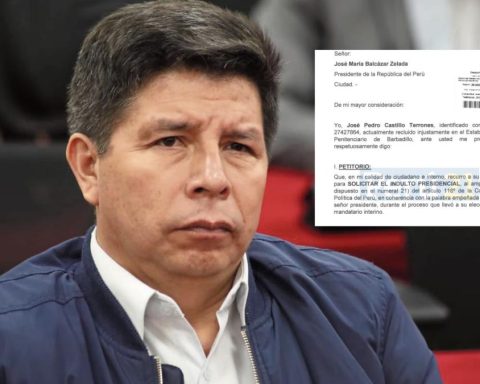This year 2023 there are a series of issues and regulatory changes in terms of taxes that may be relevant for more than one taxpayer, so the partner of the Tax Area of the Miranda & Amado law firm, Pablo Sotomayor, explains which are the most important modifications to take into account.
Some of the most relevant points include the extension of the exemption from Income Tax (IR) for the sale of shares through the Lima Stock Exchangewhich must be taken into account by companies or incentives to promote the Investment Funds in Movable Assets Income (FIRBI).
Next, Sotomayor begins to describe them:
one. The extension of the exemption from Income Tax to capital gains obtained through the Lima Stock Exchange (BVL), which will be in force until December 31, 2023. “Although initially it was thought that it would not be given (the exemption has been in force since 2015), it was included in the Sole Final Complementary Provision of Law No. 31662, which modified Law 31362, Law of Payment of MYPE Bills to 30 days”, he points out.
However, Sotomayor points out that this extension has not been given in the same terms in which the rule governed until the year 2022, but that its application is subject to the following conditions:
- It will only be applicable to capital gains generated by a natural person, undivided estate or conjugal partnership that chose to be taxed as such.
- The exemption applies up to the first 100 UIT of the capital gain generated in the year.
Thus, the capital gains generated by legal persons in their operations in the BVL have been excluded from the exemption.
2. The special regime for depreciation of assets acquired from January 1, 2023. Sotomayor indicates that Law No. 31652 has established a special accelerated depreciation regime for buildings and constructions, as well as for electric vehicles applicable to taxpayers of the General Income Tax Regime (IR) and the MYPE Tax Regime, provided that the acquisitions have been made as of the year 2023.
The standard provides:
- Accelerated depreciation for buildings and constructions at a maximum rate of 33.33% per year.
- Accelerated depreciation for hybrid and electric vehicles (except railways) at a maximum rate of 50% per year.
The application of the above rates is subject to compliance with certain requirements. This rule seeks to encourage the increase in infrastructure and promote the acquisition of electric vehicles, he says.
3. The extension of incentives to promote Real Estate Investment Funds. Through Law No. 31650, the tax incentives for the promotion of Movable Property Income Investment Funds (FIRBI) were extended until December 31, 2023. These benefits are the following:
- Deferral of the birth of the Income Tax and the Alcabala Tax in the transfer of real estate to the FIRBI;
- Special rate of Income Tax of 5% for natural persons applicable to income from leases or other forms of onerous assignment for use of real estate attributed to the FIRBI.
The lawyer recalls that these benefits originally expired on December 31, 2022.
4. Market value of shares. As of this year, the applicable market value for Income Tax purposes in the sale of shares that are not listed on the Stock Market, will be the greater between the transaction value (the agreed price) and the value obtained from apply the discounted cash flow valuation method to the company. The application of the method must be supported by a technical report that contains at least the information established by the Regulation.
The application of the discounted cash flow valuation method has exceptions contained in the Income Tax Law. In this case, the market value applicable to the shares will be the higher of the transaction value and its value of equity participation, which is calculated on the basis of the last audited balance sheet of the company issuing the shares closed prior to the date of the transfer or on the appraisal value of the shares, as appropriate, details Sotomayor.
Until 2022, the market value of shares not listed on the Stock Exchange was the transaction value, which in no case could be less than the equity participation value according to the last closed annual Balance Sheet of the issuing company. Thus, starting in 2023, the value of equity participation as the basis for determining the market value will be restricted to specific cases, he points out.

















